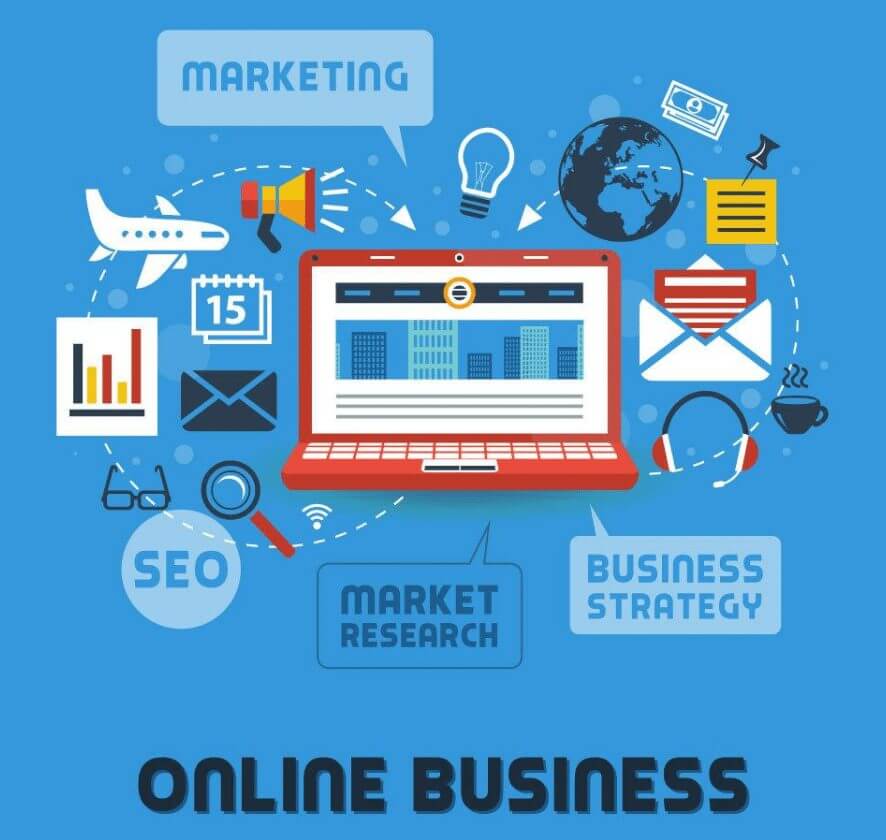Millions of people own and operate successful businesses — all of which started as simple ideas.
Technology has made it easier than ever for entrepreneurs to launch, promote and live off their own online companies. Here are the seven fundamental steps to turning an idea into an online business.
Develop a Concept, Find a Gap
All businesses start with a concept.
Business News Daily is one of the many publications that recommend developing a business around something that you love or something that stirs your passions. This is very good advice, but no matter what you love, other businesses are likely already selling it.
If you love making hamburgers and want to turn that passion into a business, you’re going to be competing with McDonald’s. This requires finding a gap in the market. Market gaps are problems or voids that frustrate consumers. When you can fill that void or solve that problem, you have discovered your business’ niche.
Wired’s Next Generation symposium profiled several young entrepreneurs who successfully exploited gaps in existing markets.
One entrepreneur turned her love of cycling into Blaze, a business that exposed a market gap related to safety for urban cyclists. She talked to bus drivers, council members, and road safety experts. She discovered that crossing the paths of vehicles that couldn’t see them was the biggest danger facing urban cyclists. By developing products that addressed that problem and filled that void, she found room to maneuver in a crowded industry.
Look for niches that aren’t well covered, or where you can do things better. Listen to customer complaints on forums and message boards in your industry, and keep up with industry-related legislation — new laws often create market gaps.
Name Your Business
The name you choose for your business matters so much that it can be the deciding factor between success and failure. Entrepreneur recommends enlisting the help of a professional naming service. These companies — which weigh the many variables associated with your product, service, industry — charge anywhere between $50 and $80,000.
Your business’ name should be relevant to what you do or sell, it should conjure positive images, it should contain real words and, perhaps most importantly, it should be short and memorable. When you come up with a few options, visit GoDaddy.com to see check if a URL relevant to your business’ name is still available.
Develop Your Site
When it comes time to launch a website, there are many competing web builders, but here are nine reasons you should choose WordPress:
- It’s free.
- It’s simple and doesn’t require a tech background.
- Adding new functionalities is easy.
- It’s built with SEO in mind.
- You can make it look great with an existing theme.
- It comes with the built-in ability to add a blog.
- It’s flexible.
- It’s designed for upgrades to e-commerce.
- Strong support.
Consider using Upwork to find good freelance writers and designers to populate your website.
Launch an Adwords Campaign
There are few better ways to gain instant visibility than through an Adwords campaign. Google offers a lengthy and comprehensive tutorial for achieving success. You should not only read it but complete the tutorial section that follows each chapter. Follow the guidelines, but remember that true success with Adwords requires experimentation. Organize your account into groups and stick to one goal per campaign.
Blogger Outreach, Link Building, and Organic SEO Placement
Now it’s time to raise your profile and get yourself noticed beyond your paid ad campaign. Blogger outreach is based on building relationships with the influential titans who command large audiences in your industry. By leveraging these bloggers to write about your product, you introduce your business to a wide audience of likely buyers through a blog that they know, trust and depend on for information.
Here is an excellent list of guides, tutorials, strategies and other resources related to blogger outreach.
The SEO landscape is always evolving, but one thing that has not changed is the value of link building. When a powerful blogger mentions your product, he or she is vouching for your business and lending it credibility. The same thing applies to inbound links. When another website links to your own, they are telling their readers — and the search engines — that they consider your site to be credible, authoritative and worthy of their attention.
Here is a powerful tutorial on link building.
Finally, successful organic SEO placement can help your website achieve an all-important high ranking in the search results. The critical top search spots are highly coveted, and everyone in your industry is competing for limited spots. Register your website, optimize every page and establish a relevant blog. Incorporate video into your site, cross-promote through social media and submit articles and other compelling content to relevant websites.
Promote your Business on Social
Use a strategy that incorporates both paid and organic social promotion. The organic promotion will come through the dissemination of powerful, visual, compelling content. Content should be tailored to the specific social channel on which it will appear, it should be released at the right time and it should be engaging and inquisitive — questions encourage amplification. Here is an excellent tutorial on organic social promotion.
Paid social promotion moves your content beyond your “owned” channels, such as your Facebook page, and in front of a much wider audience. American Express created a great tutorial about Facebook Promoted Posts, Twitter Promoted Tweets, Linkedin Ads and more.
Measure Performance
Finally, nothing you have done up to this point matters if you can’t measure key performance indicators (KPI). Measuring KPI is the only way to gauge if your business is meeting its goals, achieving acceptable ROI and meeting its targets.
The most widely used and probably best-known platform is Google Analytics, which offers suites for small businesses, enterprise-level businesses, and mobile apps. Google Analytics is a powerful tool, but it comes with a learning curve. Through its Analytics Academy, Google offers free online courses taught by its own in-house measurement experts.
Use Google Analytics, but don’t rely on it exclusively. Also consider powerful tools like Grow, Geckoboard, Moz and Simple KPI.
Image courtesy of Shutterstock
Start with a concept based on something you enjoy, find a gap within that industry and solve an existing problem — that’s the hard part. From there, you have to choose a powerful name, build a website, and then get eyeballs on that website through paid and organic promotion strategies. Once you’re up and running, the work never stops — a good business owner is always adjusting, experimenting and measuring results.



